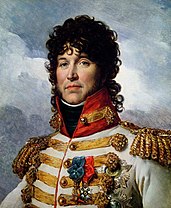Design
Design
Personality
Chart Properties
Your Cross represents the specific theme of your life. This cross embodies your unique potential & the lessons you're here to learn, providing a roadmap to fulfilling your life purpose.
We use the UTC birth time and date to do the calculations required to generate your Human Design chart.
Buy Tokens
Pay as you use, no expiry and no subscription required.Prompt Ideas
Get inspired with some epic prompt ideas.Duke of Saxe-Weimar-Eisenach Ernst August II's Biography
German nobleman, the only surviving son of Ernst August I, Duke of Saxe-Weimar by his second marriage to Sophie Charlotte of Brandenburg-Bayreuth.
His father died in 1748, when Ernst August II Konstantin was eleven years old. Since he was still a minor, the dukes Frederick III of Saxe-Gotha-Altenburg and Franz Josias of Saxe-Coburg-Saalfeld assumed the regency of Saxe-Weimar-Eisenach on Ernst August II Konstantin’s behalf. The young duke came to live with Duke Frederick in Gotha, who made sure that Ernst August II Konstantin received an appropriate education.
In 1755 Ernst August II Konstantin assumed the reins of government. He appointed his former tutor, the Imperial Count (Reichsgräf) Heinrich von Bünau, as his new chancellor. Because the young duke had been a sickly child, he was encouraged to marry quickly in order to ensure an heir for the duchy.
In Brunswick on 16 March 1756, Ernst August II Konstantin married Anna Amalia of Brunswick-Wolfenbüttel. They had two sons: Karl August, Duke of Saxe-Weimar-Eisenach, Grand Duke from 21 April 1815 (b. Weimar, 3 September 1757 – d. Graditz, 14 June 1828); and Frederick Ferdinand Constantine (b. posthumously, Weimar, 8 September 1758 – d. Wiebelskirchen, 6 September 1793) who died unmarried.
He died on 28 May 1758, aged 20. His son, hereditary prince Karl August was still an infant. Ernst August Konstantin’s widow, the duchess Anna Amalia, then presided as regent over an excellent tutelary government which propelled Weimar into the classical period.
Link to Wikipedia biography
Your Cross represents the specific theme of your life. This cross embodies your unique potential & the lessons you're here to learn, providing a roadmap to fulfilling your life purpose.
We use the UTC birth time and date to do the calculations required to generate your Human Design chart.







